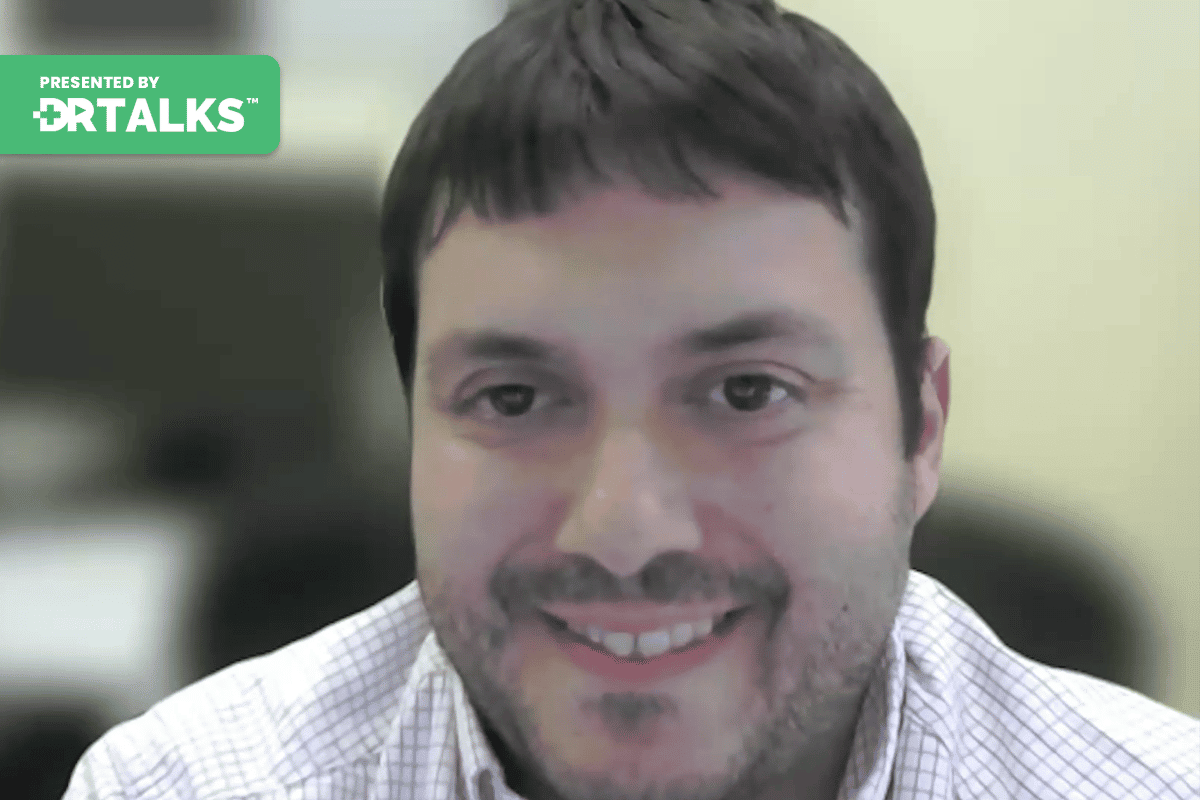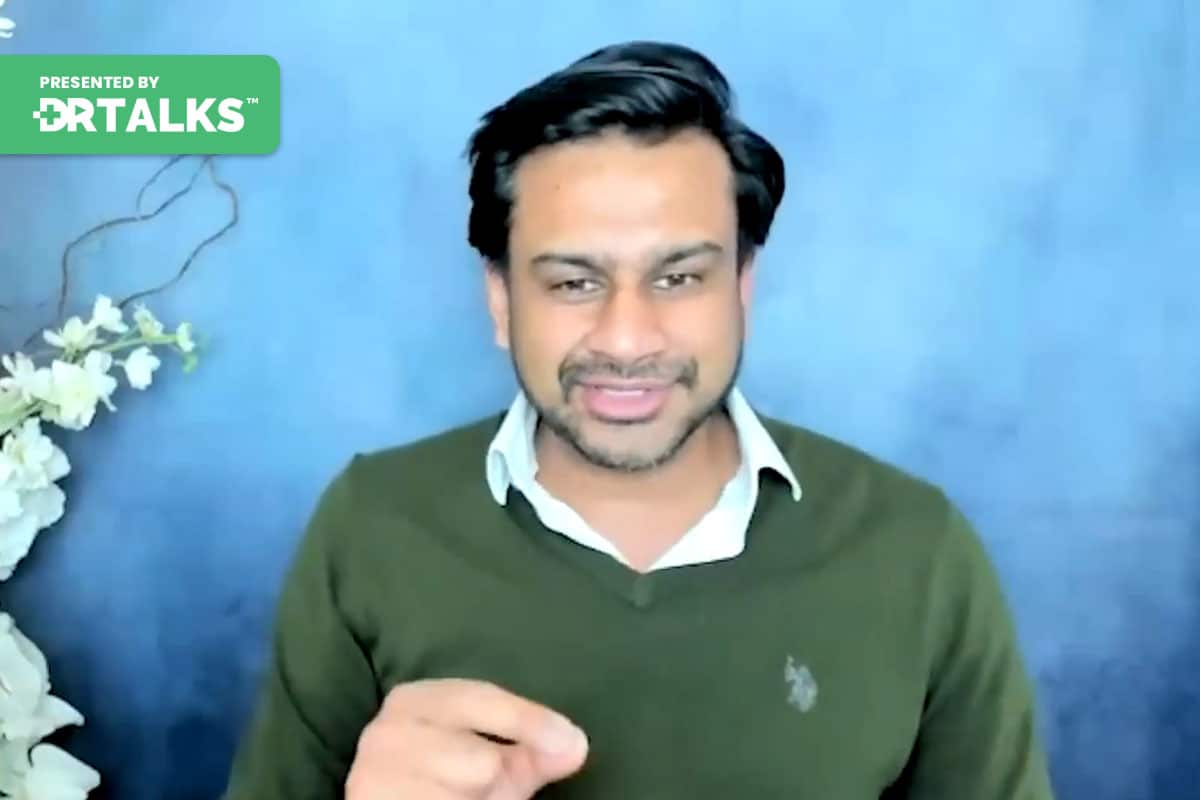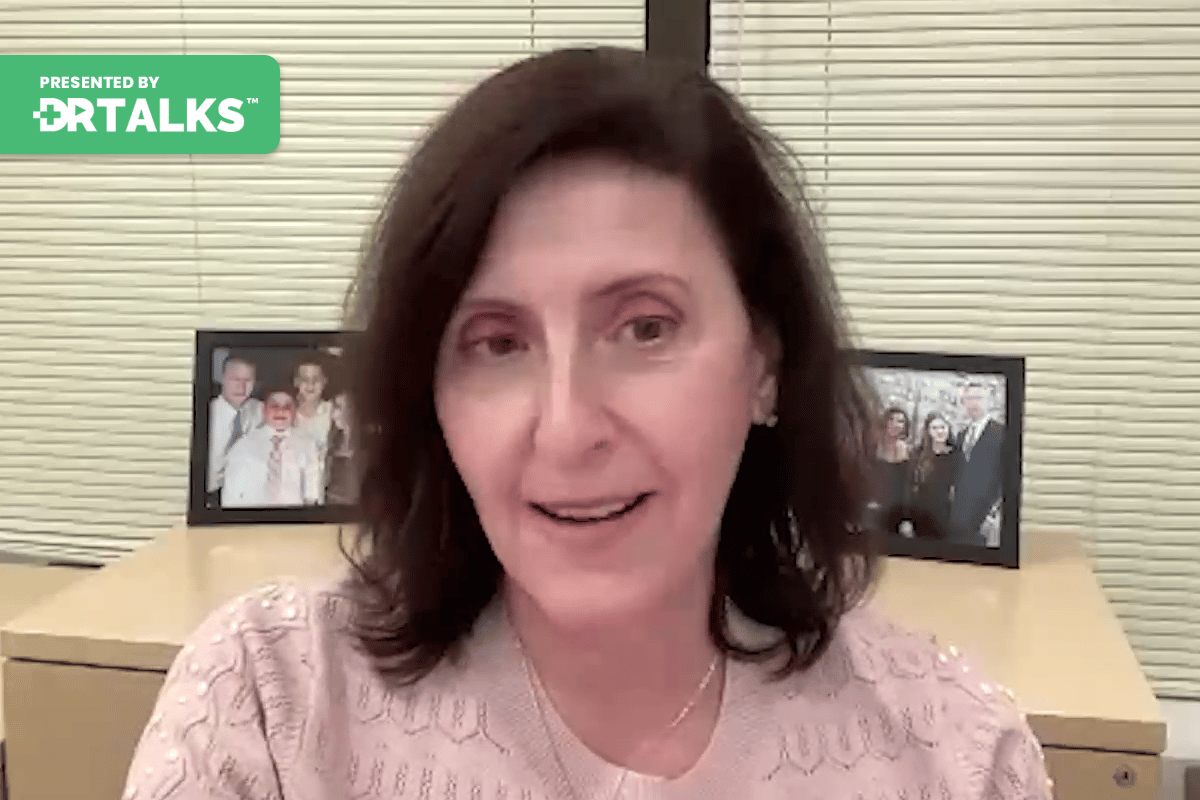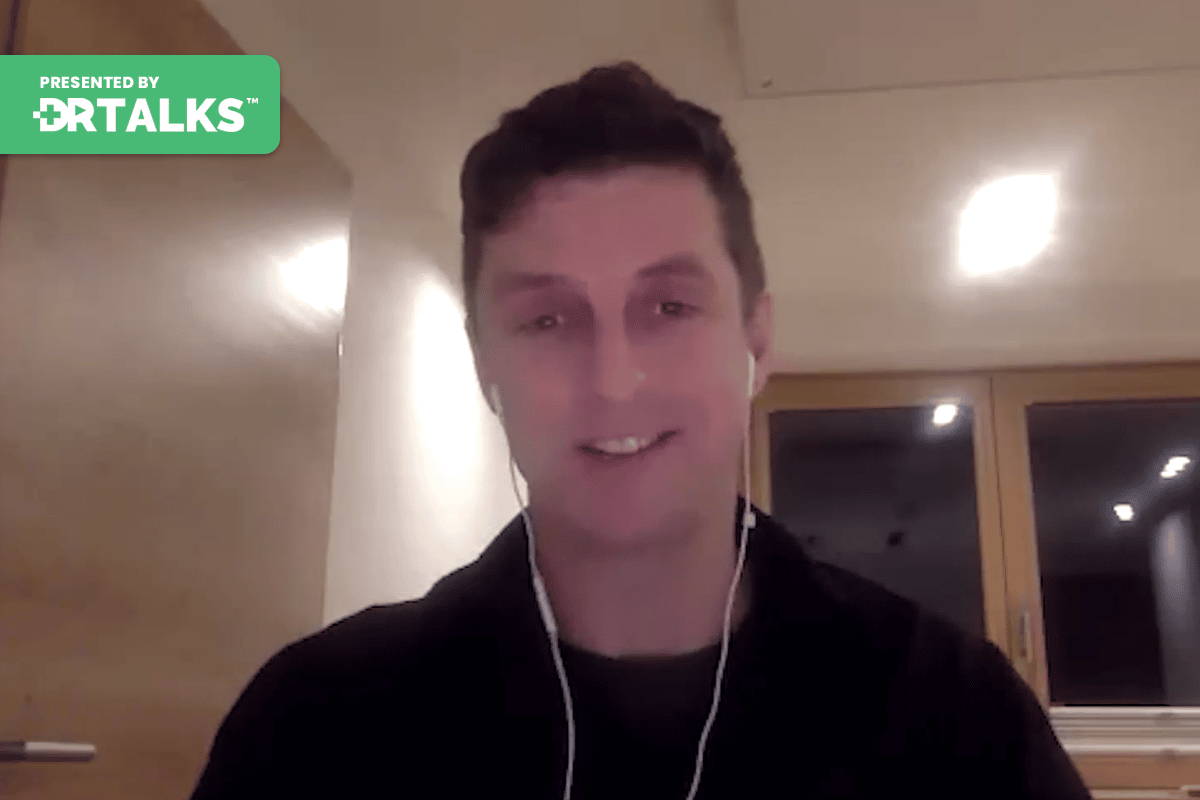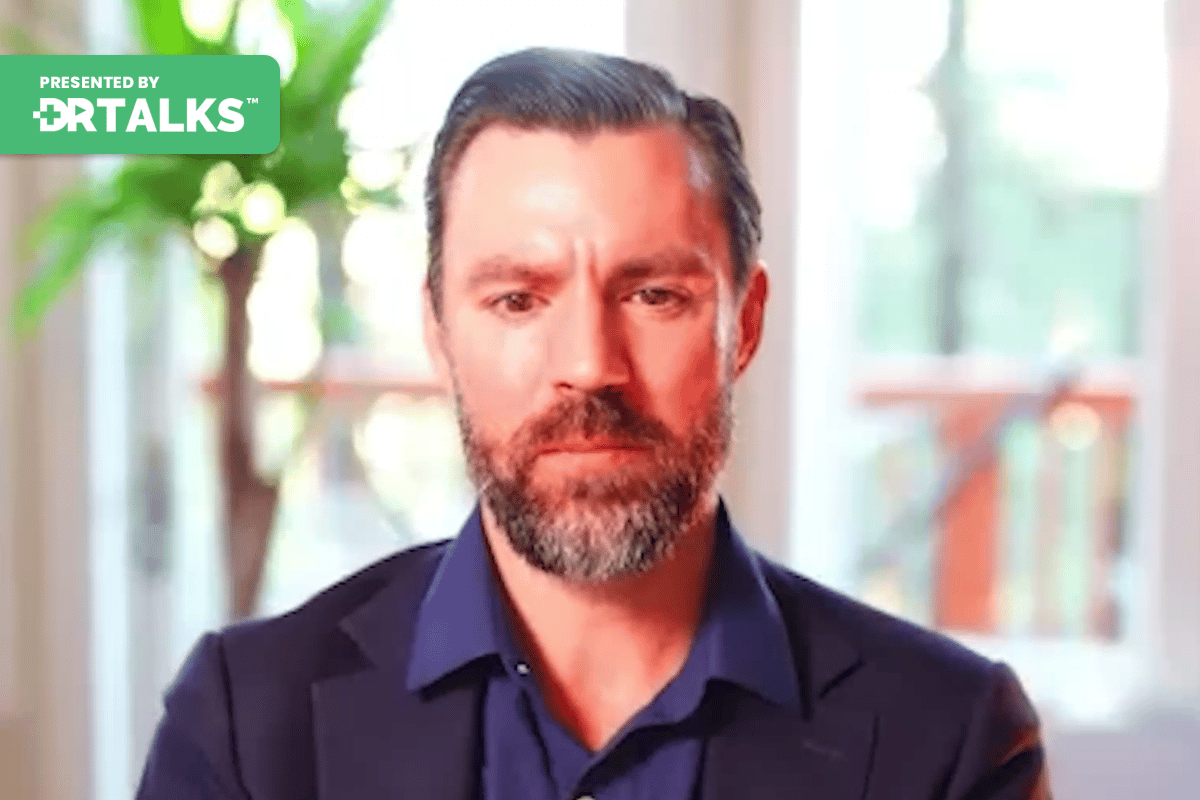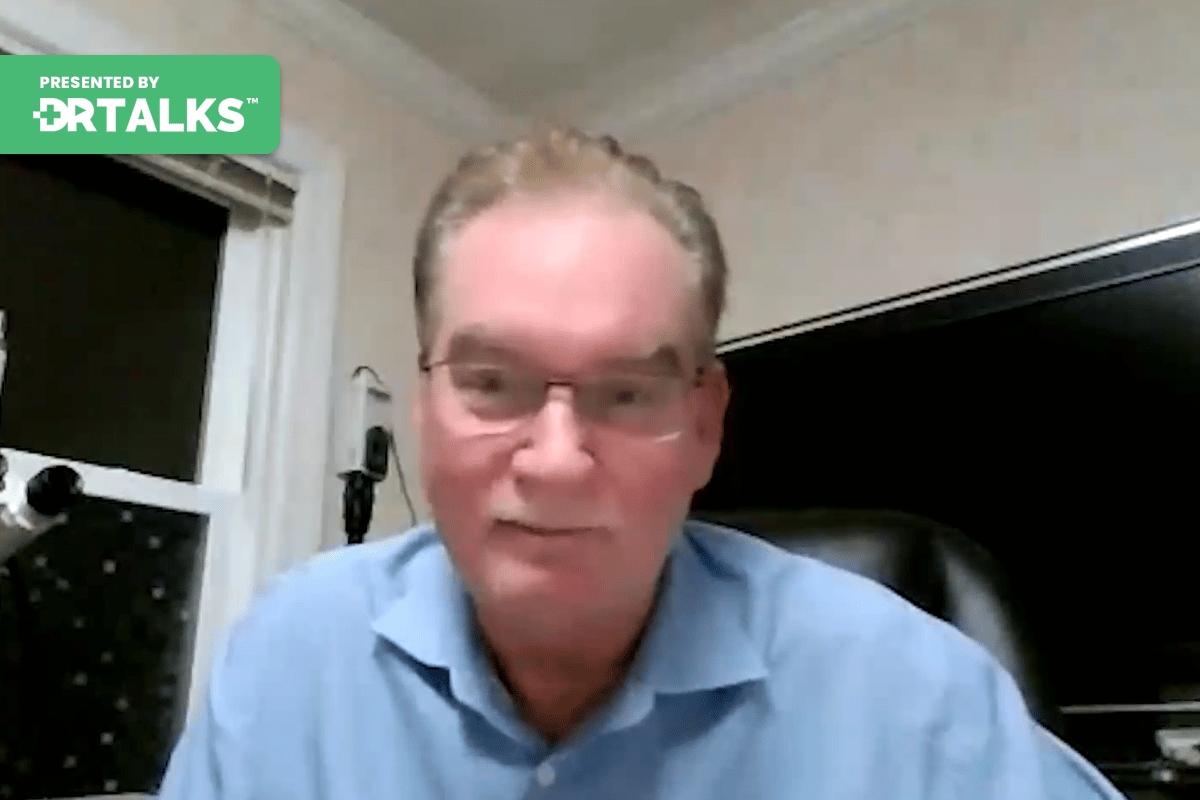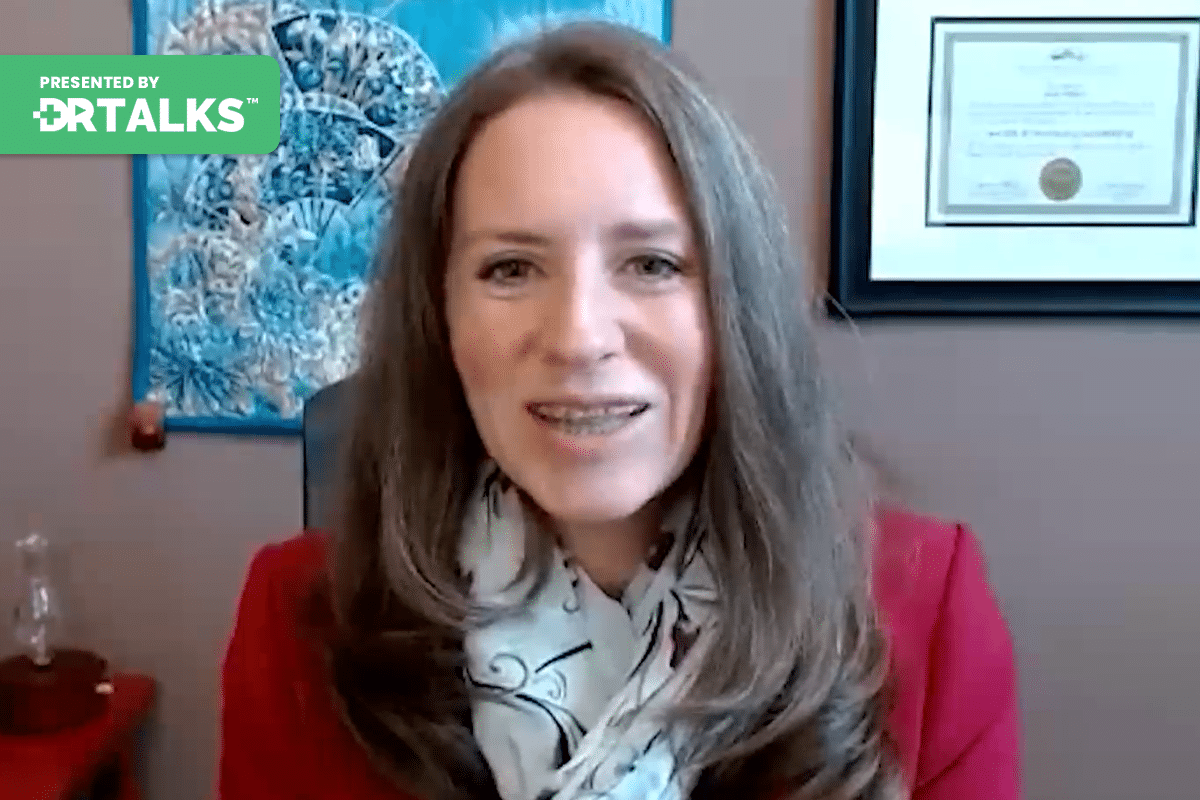Join the discussion below
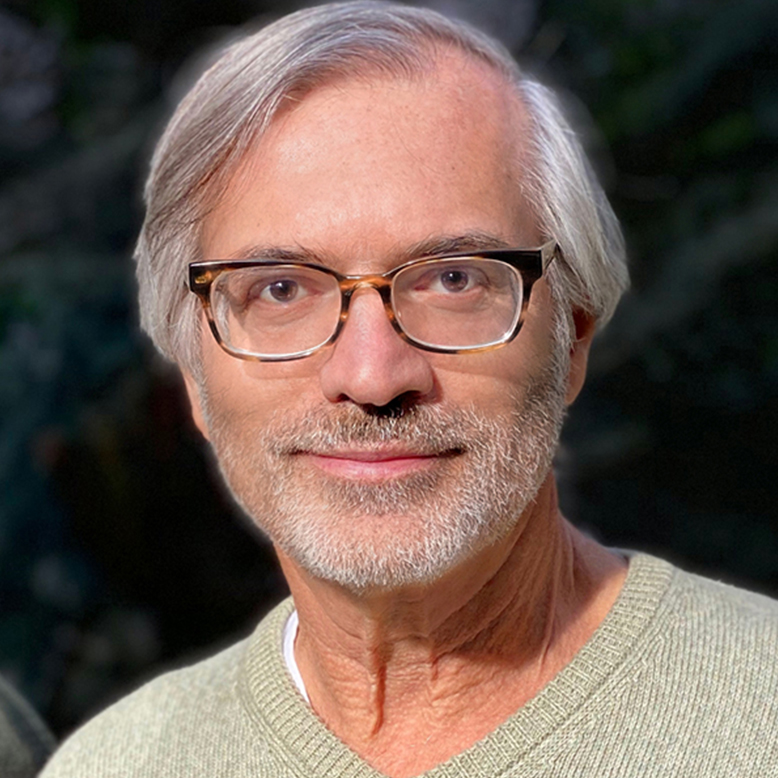
Eric Gordon, MD is President of Gordon Medical Research Center and clinical director of Gordon Medical Associates which specializes in complex chronic illness. In addition to being in clinical practice for over 40 years, Dr. Gordon is engaged in clinical research focused on bringing together leading international medical researchers and... Read More
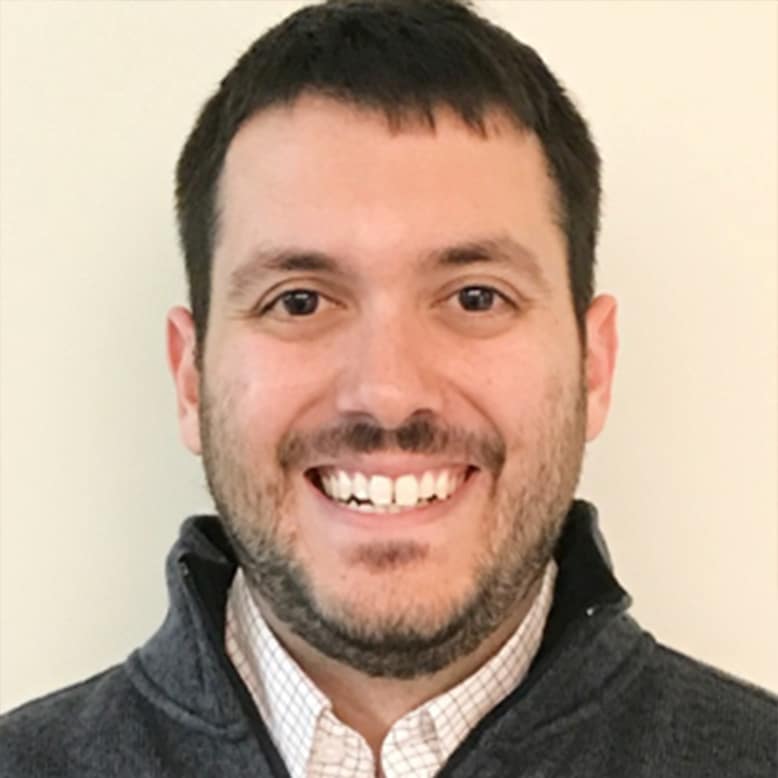
Dr. Peluso is an infectious disease physician at the University of California, San Francisco. Prior to COVID, his research focus was on the chronic sequelae of HIV infection. When the SARS-CoV-2 pandemic emerged, Dr. Peluso led the efforts to implement the Long-term Impact of Infection with Novel Coronavirus (LIINC, pronounced... Read More
- Understanding the biology of COVID
- The early days of the virus and the journey of the LIINC study (and how the disease has morphed since inception)
- Understanding variability in the long-term immune response between individuals
- The Recover Program, a national study of Long Covid
- Review of mechanisms that are being investigated
Eric Gordon, MD
Welcome welcome to another edition of Overcoming Long covid and CFS. And today we have actually I’ve been looking forward to this for quite a while because it’s a chance to really talk to people in academia who I think are doing a lot of good work and I don’t think enough people are paying attention to it. And today we have Dr. Michael Peluso who is an MD infectious disease doctor at UCSF. And he has he I think is way ahead of the curve. And he’s gonna tell us about a program that he helped start in April of 2020 called the link program. And then we’re gonna go on and talk about the recovery program, which is, correct me if I’m wrong, I believe it’s the government. And I mean that in the best sense of the way and the sense of the word, I think the government doing what it should be doing, which is supporting research to help answer important medical questions. But so, Michael, so first welcome and tell me about how the link to tell people what it is and how that came about.
Dr. Michael Peluso
Yeah. So the link program stands for long term impact of infection with novel coronavirus. And it is really one of the first post covid and long covid studies that launched in the country in the world. So what happened was back in March of 2020 when we saw that community spread of SARS Cov two was happening in the Bay Area. We in the infectious disease division and in my group at UCSF sat down and tried to think about what research was happening and what we could do to contribute for decades. We’ve run a infectious disease research program focused on HIV which is a chronic infection and trying to understand all of the things that happened to people after they have HIV.
And when covid started we thought well we’re not really in a position to understand what happens during acute covid during the first a couple of days or a couple of weeks because of all of the complicated infection control issues and things like that. But we are in a really good position to understand what happens to people and their overall health and well being after they have covid. And at that time everybody was quite appropriately focused on the acute infection, figuring out who was gonna get it, how sick they were gonna get, who is going to end up in the hospital, how to get people, you know, prevent people from ending up on oxygen or in the ICU. But nobody was really thinking at that time about what happens afterwards. And so we set up link in March of 2020 and launched it in April of 2020 to receive people on the other end of covid, figure out what happened to them during the acute infection and then follow them forward in time to monitor their symptoms, their overall health. And to and to understand what was happening to them immunologically our study opened, we saw our first participant on April 21st 2020 here at San Francisco General Hospital in our outpatient research center.
And we had just tremendous interest right away, even though relatively few people at that point had been infected with the virus. And we very quickly saw that some proportion of the individuals who were coming to participate in our research study were telling us, you know, well, you know, this was billed as a two week illness, but I’m four weeks or six weeks or eight weeks out and I still don’t quite feel back to normal. And so we didn’t know what was happening at the time, but ultimately, those were some of the earliest cases of long covid in the bay Area. And we we went to Great effort to document what was happening and to study what was going on in, you know, in those people’s bodies
Eric Gordon, MD
And over the last two years, quite 18 months, you know, what what I know anything that you noticing that you think is interesting in the in patterns and yeah,
Dr. Michael Peluso
I mean it’s all it’s all interesting, so much of the, you know, much of the first year was spent documenting what people were experiencing. And just trying to describe what was going on in this group of people. So, you know, many people who decided to join our program had the infection totally bounced back, felt fine and just wanted to kind of contribute to science. But some people, you know, we’re still quite debilitated and and, you know, we’re sharing things about, you know, ongoing symptoms that were affecting their overall health, their ability to work their ability to, you know, have normal interactions with their families and friends, family and friends. And so we spent a lot of, a lot of time and a lot of energy just recording this to try to understand how common these symptoms were among the people we were seeing the patterns of symptoms, how they changed over time. And so that was really one of the earliest efforts to describe long covid since that time, much of our effort has focused on trying to understand the biology of long covid and that’s a lot more complicated. Because you really have to you know, sort of think about all of the different biological mechanisms that can potentially contribute to these ongoing symptoms. And then in a stepwise manner, systematically try to evaluate each of those things, which takes, you know, a lot of time. A lot of a big network of collaborators with expertise in all sorts of different areas of science. Yeah, I think it’s been, you know, it’s been unfortunate that so many people are suffering with these issues. But, for me, it’s, you know, been really inspiring to be able to work with them and to try to get them some answers, even though it’s, you know, even to 2.5 years in, it’s still kind of the early phases of this
Eric Gordon, MD
Right now. This is, you know, I think the first thing is just a thank you because so many, you know, I mean, this is the fact, right in the beginning, you were just listening to your patients, which I think is is the hallmark of, I think of it should be all physicians, unfortunately, it seems to get trained out of a lot of them.
Dr. Michael Peluso
Yeah, no, I mean, well, you know, I think it’s important that you mentioned that because, you know, it was such an interesting time for the health care system where there was such a high level of, you know, stress and anxiety of course among providers and clinicians and, you know, people in the health care system who were like worried about themselves and their families and and certainly among, you know, everybody in the world who was simultaneously at risk for for this infection and, and, you know, it’s really interesting to think back, you know, all these people had when somebody got covid, especially in the first few months of 2020 the healthcare system kind of, you know, descended on them. Did all this stuff to kind of make sure they were okay triage them whatever. and then on the other side there was so little capacity for people to kind of re enter regular routine care and there was so much fear because we didn’t know how long people were infectious for, you know, was it two weeks, was it two months like nobody knew?
And so yeah, I won’t pretend to take, you know, total credit for all of this on our end. You know, we we had a team of you know clinicians, study managers and research coordinators who were seeing people in person, you know, in PPE when there was so much unknown in April and May and June of 2020 and and those efforts to me were really heroic just to kind of engage with people on the other side. So yeah, I mean, you know, and the other thing to your point is unfortunately, people with who experienced these issues faced so much stigma. There was kind of the stigma, I mean if you think back to 2020 I think it’s different now, but there was a lot of stigma around just getting covid in 2020 because people felt like they had done something wrong, it wasn’t that common now, you know, especially in the omicron era, you know, more people have had it than happened, but then there was also a lot of stigma around not getting better right away.
Eric Gordon, MD
Yeah, I think just one thing to mention, I think there was an east and west coast or at least in New York and San Francisco divide because you know, if you lived in New York people were, it was just like it was everybody and out here out here. I mean I’m in Marin County and I didn’t. I didn’t see I I felt left out, you know, as a doctor, I was like, you know, missing because we didn’t everybody, everybody went to ground, you know, they’re just like hid. And so for that first eight months, most of us, there wasn’t a lot that’s true.
Dr. Michael Peluso
It was, it was a much the first wave was much different in SF in particular here to places like New York. Actually, a lot of clinicians and other health care workers, you know from our area in the bay area actually went to New York to work. During that time it was quite amazing. Yeah.
Eric Gordon, MD
No, no, that was an outflow because that was, and I think that’s what’s kind of like, it still affects the discussion about covid is like where you were during those first few months because the death rate was, it just, it was high and frightening and and when the treatments were not there yet. Yeah, it was much messier and I don’t think there’s enough appreciation for how this illness though still kills people, how it has, you know, for sure for sure. But so you guys came up with, I mean, so amazing. You had a program. I mean, that’s the thing is that you saw it, you got on it, you’re collecting data and at this point, you know before, so there are some biological markers that you’ve been looking at. Any one of them or a few of them That you still think there’s like, what is it? Two years? I’m so bad at time. 21. Yeah. It’s that long. I keep wanting to cut a year off of it. But my God, that’s 2023. Yeah. Okay. So is there anyone that stands out for you or any few that you think are really worth following?
Dr. Michael Peluso
Yeah. Well that’s a great question. I think, you know, the short answer to that question is that very few things have been definitively ruled out and were eliminated. So probably the first thing that we and other groups noticed in, you know, comparing people who had long covid to people who had covid and fully recovered. One of the first things that was sort of identified was that people with long covid on average tended to have higher levels of inflammation in their bodies. And actually the thing that set this off in my mind, was actually not a long covid study at all, But it was a study of people who had covid and were donating convalescent plasma to help people who were getting covid, you know, as a treatment. And so a group had, you know, their blood banks where people donate plasma. And so they basically compared plasma from people who were donating after they had covid to historical plasma from before covid existed. And they found that people who were donating plasma after they had covid had higher levels of inflammation. So when we saw that, we thought, well, maybe this is being driven by people who still have some symptoms. Right. And so we that was actually the very first biological study that we did in link was looking at just a handful of blood markers of inflammation and people with and without symptoms.
Four months after they had covid. And what we found was that people who had symptoms on average at higher levels of inflammation, not sky high levels of inflammation. That would be like setting off an alarm in the, in the, you know, electronic medical record. But when you compare, you know, hundreds of people, you saw clear differences. And I think lots of other groups have now demonstrated that that is the case. And so, so much of the effort now is on understanding what actually might drive those differences in inflammation. And those are kind of the main areas that are being investigated now. And they’re, you know, five or six different hypotheses about what might be driving that inflammation. That I think is kind of the main area of focus now and where we’re gonna get started to get more answers over the next year.
Eric Gordon, MD
Right. Right. Yeah. I know my thing is that chronic inflammation is underneath all chronic illness that’s the difference. It’s but any particular markers that I mean, you know, I would be I. L six or R. I. L eight. Any particular one of those are audiences at least some of our audience, I know our patients who, thanks to the google God and their intelligence know a lot about technology these days.
Dr. Michael Peluso
Yeah. Yeah. Well I would say, you know the most consistently identified markers in my opinion are all non clinical markers that aren’t easy to get there. But our aisle six TNF alpha and I’ll one beta. And those markers are consistently identified across many studies. And it you know, it suggests that there’s an inflammatory signature. And there’s a lot of questions now about, you know, what, you know, what specific types of immune cells are implicated. So obviously we know during acute covid the acute infection has a impact on immune cells like neutrophils and lymphocytes which have a lot of antiviral activity. There’s also a lot of interest now in the role of monocytes And macrophages in driving Long covid and post covid symptoms and there aren’t a lot of answers to that, but that’s become over the last year a major focus of investigation by our group and and others. Yeah and you know there are a handful of really great studies that are going on now all around the country and around the world to delve into this more. And I think as time goes on we’ll see more and more sophisticated studies that really help to define the sort of inflammatory signature that either drives or is associated with long.
Eric Gordon, MD
Right. Right. I think that that’s important for people to understand. Is that what gets us into trouble in medicine is many times we confuse well confused or just not we don’t it’s not clear what what what what goes together you know when we see two things happening are they causal or they just happen to be happening for different things at the same time.
Dr. Michael Peluso
Exactly exactly. So we can say that somebody is you know on average people with on covid have higher I’ll six levels. That doesn’t mean that decreasing the I. L. Six level is going to make somebody feel better. And that also doesn’t mean that you know somebody who has a high I. L. Six level if you lower it that’s gonna be good enough for them. Like people care about how they feel Not with their blood level of something is so yeah it’s definitely a complicated thing and I think you know like I said it’s really now trying to understand what might drive these immunological differences because that might actually be the root cause that needs to be intervened upon.
Eric Gordon, MD
Right? Right. So with that in mind let’s move on to the recover program because that’s something I don’t again I don’t think a lot of people, even people with long covid really understand or realize what’s happening out there and maybe some of them can be helpful. So tell us about the recover program and what you’re doing with them.
Dr. Michael Peluso
Yeah. So you know, link is a local program, right? It it sees people in San Francisco who are physically in San Francisco in person in San Francisco. And there are lots of studies like that around the country in all sorts of places. Recovering is a national program. So what happened is that over the course of 2020 really because of the advocacy from people experiencing long covid and the friends and family of people experiencing long covid, the government really started to pay attention to this issue. And so the NIH convened its first meeting on what became known as long covid actually in 2020 in the late fall of 2020. And from those initial discussions among clinicians, researchers, patients came this massive investment from the U. S. Congress in trying to figure out long covid. And so that effort is all under the umbrella of a program called recover which stands for researching covid to enhance recovery. They announced this program in February of 2021. And institutions all around the country apply to be a purse of the recovery program. And 15 were selected were fortunate in the bay Area that both UCSF and stanford were selected to be a part of the program and so recover launched late in 2021 as a national study of Long covid that is enrolling people with and without long covid at over 100 sites around the entire continental United States. So 15 institutions over 100 sites. The goal is to enroll tens of thousands of participants and follow them forward in time. So it’s really, you know, what we’ve been doing in link on a much larger scale.
And the cool thing about recover Is that it brings together all of the stakeholders. So the all of the scientists of all of these institutions, including other institutions that aren’t even part of the 15 enrolling sites the patient community and community representatives the NIH and it’s just something that is at a tremendous scale. That is really unprecedented I think since large HIV cohorts were launched, you know, 20 years ago and I think it’s gonna answer a lot of important questions about long covid. You know using the data and the samples from people like all over the country with great representation.So we’re really excited to be a part of it. And you know, I think it’s gonna continue to evolve over time. But it’s like you said, it’s a really amazing thing to kind of witness and be a part of and like I said, is really unprecedented in our no.
Eric Gordon, MD
And what’s, it’s so exciting to those of us who’ve been in this field of what we call it chronic complex illness. So we named it many years ago and you know, it’s just basically a lot of symptoms, a lot of really sick people, but no clear cut test, you know, and and that has and so we’re hoping that this program is going to have the fallout of answering or at least giving us markers that will work for a multitude of these chronic illnesses such as chronic fatigue and even fibromyalgia and the kick born diseases. You know that again, you maybe you can’t find the bug, but the body is still sick.
Dr. Michael Peluso
I think that I think that there’s a lot of hope that a lot of these unanswered questions will be resolved. You know what I tell people is that, you know, if you just think about the context of covid, you know, there are all these conditions that we we suspect or post infectious conditions, but this is really the first time where everybody was simultaneously at risk of and acquiring the same infection that everybody was attuned to and paying attention to in a really small period of time. And so it’s been so complicated with other post infectious conditions because often the initial trigger during the event wasn’t something that people were paying attention to with covid, everybody was paying attention. And so it’s the context. I think it was so important. But I I agree. I think there’s a lot of hope that for these other complex conditions that studies of long covid will will lead to progress that is you know, have been slow in these other conditions.
Eric Gordon, MD
Yeah, I I even think we’re gonna see help in what I call the atypical autoimmune diseases, which is really most of them because I think a lot of rheumatologists are beginning to realize that chronic inflammation is the trigger for, you know, it’s not like your body suddenly mistook a piece of you for something else. But anyway, But so let’s go a little more granular on what do you think are the big silos, which I hate that. I gotta be careful cause that is the problem we’ve had for the last 50 years in medicine is that we have so many silos. So many experts in individual areas, but still putting that aside, what are the big areas that are being studied, you know, in the recover program. One of the ones that you think are the biggies.
Dr. Michael Peluso
Yeah, So I mean broadly in the field of long covid, not specifically in recover, you know, I think there are specific mechanisms that could potentially drive chronic inflammation that are being studied and so these are being studied by us and linked by other groups around the country and by recover and so one of one of them is persistent virus. People used to ask me as an HIV doctor, what’s the difference between HIV and SARS Cov two? And I would say HIV is a virus that persists in a person forever. That Sars COv 2 comes and goes. And that that was the framework that we used for much of the last 2.5 years. I think there’s been a growing body of evidence that’s harder and harder to ignore. That that framework might not be 100% correct. In every case, we know that many immuno compromised people can have prolonged infection with SARS COv two and we’re also finding at least pieces of the virus in a subset of people who are not known to be immuno compromised for for months after infection. And so that’s not saying that people are contagious for weeks or months or years after infection. But it is saying that there might be components of this virus That are setting off an immune response. That could drive that inflammation so that, you know, in December of 2022, I would say that that is the the top question that is being asked and that I’m hoping we’ll get an answer to over the next year. There there are others as well.
Eric Gordon, MD
So before I just want to because this is a hot topic. And I think the big question is you know, do you have pieces of virus like sort of pieces of the viral RNA that’s hanging around, you know, being made by our body versus what people call a replicated competent virus? Whether that could make you possibly contagious if you still have the virus somewhere hidden in a protective site in the body, you know, which I get I mean I just don’t like the idea that there’s a there are immunologically protective sites but you know sort of like you know, usually we don’t expect the brain I think, or the eye or the testicles to be have a much traffic with the rest of the immune system. So you have something hiding there. And yeah, and I guess since it’s hard to do biopsies on brain size or testicles, we might not get a quick yeah,
Dr. Michael Peluso
So that’s a really important point. So the things that have been identified are viral protein and little fragments of genetic material, what has not been identified as of today is replication competent virus that is making more viruses. And so that’s not to say that it doesn’t exist but it has not been found and that’s also not to say that the other pieces of viruses like the proteins and the genetic material even though they’re not contagious aren’t immunologically important to the person that is harboring them. We know that other infections have reservoirs you know for example Ebola you know has you know has reservoir sites in the eye and in the testicle. I don’t know if that’ll end up being true of this virus. That’s not how we think about coronavirus is but and then you know we also know from other other infections that the gut the G. I. Tract which has a lot of active immunological tissue and surveillance is often a site. And so most of the efforts right now are to try to identify virus in the gut because it’s generally safe to access. And a lot there are a lot studies looking at that now. So I would say that even if replication competent virus is not identified. To me it does not mean that the other pieces of viral particles are not immunologically important.
Eric Gordon, MD
Yeah. Yeah because Dr. John Kia has been looking into persistent enteroviruses and the gotten for over 20 years now as a possible cause in some people with chronic fatigue. So yeah that I mean these are areas that just are so neat. I mean this poor man has been like spending doing everything like waving the flag all by himself and nobody’s been paying a 10. So I’m really excited that we’re going to get some real good information on this. So that’s the gut. So we got the viral particles persistence perhaps with or without virus and something active still in the gut. What are they looking at other parts of the microbiome in a big way or in the regard?
Dr. Michael Peluso
Yeah, so there are some groups that are really interested in the microbiome. This is not my specific area of expertise, but there are a handful of studies now demonstrating that there are actually microbiome signatures during acute infection that might predict long covid and then that distinguish people actually in some ways to the level of types of symptoms that they have. And so there there is a lot of ongoing work in, in that area and I think that we’ll see more about that over the next year as well.
Eric Gordon, MD
Well, that’s very exciting. Is there any particular site that’s more focused on that that you’re aware of? You know, like in, you know, here Boston Texas or
Dr. Michael Peluso
I believe that there’s a group in Florida that’s really focused on this and then there are several groups I think in Hong kong that are really focused on this that have put out some papers. So yeah, that’s definitely an area of investigation. The other things that have gotten a lot of attention and I think are being studied, you know, there’s a lot of the discussion now about about sort of the blood clotting distress, elation that happens during acute covid and whether any of that carries over outside of the acute window of the infection. And so there’s a group in South Africa that’s really intensely focused on dysregulation of platelets and of the blood clotting cascade. And there are some efforts to understand that as well. Again you’d have to think about if that is still going on what might actually be driving that because that I don’t think should just happen spontaneously and so is that related to inflammation is related to something else? Is it driving the inflammation? It’s hard to know kind of how all the arrows connect in some, you know, in some of these.
Eric Gordon, MD
So that’s good to hear that Dr. Pretorius is working. That’s gotten a lot of play in the patient commune. And so it’s nice to hear that that in America that they are taking it seriously enough to to to to look because I think her point is is that this is this is different than than you know the, well not totally different but when I think of the clotting in in acute covid, you know just sometimes when you get severe that levels of, of severe inflammation and you’re driving ferreting and vibrant so high, lots of things can cause clotting but this sounds different. The persistent micro clots as she calls it is a yeah, it sounds like a different beast and it’s exciting that people are are are looking at it because you know, it’s very frustrating again to the clinicians and the patient community when you hear about these things and and especially because this one has a therapy that can hurt people, you know, many of the therapies that we use that that we use to treat people you know, until the research comes forward and gives us real answers, you know, are things that are generally safe, you know, we’re not, but but when you really put people on high doses of blood thinners you can really hurt someone. So we have to be nice to have a much a little bit more.
Dr. Michael Peluso
That’s right, that’s right, I mean, you know with blood thinners you know, a bonk on the head, it can be a life threatening scenario. So yeah, so you know, I think it’s still kind of early days of understanding exactly what is going on here, but you know Dr. you know, we’ve spoken extensively with Dr. Pretorius and she’s actually presented on some of the recover public seminars and stuff and so there’s a lot of collaborations going on in this specific area.
Eric Gordon, MD
That’s really exciting to hear because we need this you know we need some decent testing so we know what to do.
Dr. Michael Peluso
Yeah that’s other mechanisms that are being investigated are you know reactivation or contributions of other chronic infections for example Epstein Barr virus infection. And so we recently published a paper using data from link showing that there seemed to be antibody signatures of recent Epstein Barr reactivation in people with some types of long covid in particular fatigue and neurocognitive symptoms were trying to figure out exactly what that means. But there are now a handful of studies that have identified that.
Eric Gordon, MD
Yeah that would make sense. You know, we we’ve been chasing E. B. V. Reactivation or just you know it’s almost like long covid is because you don’t necessarily need the bug to be reproducing as much as you just need it to To be irritate you know, getting the immune system to react to part of its proteins. We’ve been chasing that and chronic fatigue for probably almost 35 years now, you know and and and there’s a subset of people who do respond but it’s a small subset and it’s been difficult to figure out who they are. So again this is a very exciting thing if you guys can actually can figure out who’s gonna who’s gonna respond if we actually knock the E. B. B down.
Dr. Michael Peluso
Yeah and that’s important because you know just like you said with the anticoagulants you know treatment for E. B. V. With anti viral isn’t entirely benign either.
Eric Gordon, MD
So to mind my it’s a few it’s a lot safer though. I mean I have gradations okay those of us those of us who are in the field who life aren’t waiting for the blessing from on high you know when we’re going to treat people you know the antivirals especially the ones for E. B. V. Are in the I consider the generally safe range when we start doing the C. M. V. Kind of antivirals and we’re getting a little bit more you’re gonna you’re gonna hurt a few people. So are there by the way on that note are people looking at H. H. Six and cytomegalovirus or any other viral reactivation?
Dr. Michael Peluso
Yeah. So there are efforts to look at cytomegalovirus. I’m not sure about H. H. V. Six. You know we actually made a really surprising observation about C. M. V. So there’s some data that C. M. V. Reactivation during acute. covid is bad which makes sense. But in our study we’ve actually found that people who have a history of C. M. V. Which is you know the majority of people actually have a lower lower odds of having long covid. And that’s confusing. And so it may it seems that C. M. V. And E. B. V. Actually go in opposite directions. And we’re trying to understand that too. I’m curious if you have any ideas about that.
Eric Gordon, MD
Well just just the you know Dr. Navio and this and fellow Dr. Prousti from Germany did some interesting work with HhC H H. B. Six and this is this is in in in test tubes or not in vitro. Not not not in people but using people’s blood. And showed that you know people with when he took the the I believe it was the plasma I get confused the plasma this hearing but he took part you know part of the blood, the liquid in the blood and who in people who have very high levels of antibodies you know to H. H six that actually protected cells from getting infected with virus interest in healthy people because again remember we co evolved with these viruses so they probably do things that are actually you know just like the parasites the co evolution. They’re not all bad. We were probably in a dance when we get out of balance.
Dr. Michael Peluso
Yeah. And there you know there is some data that for C. M. V. For cytomegalovirus that you know in healthy people having a history of cytomegalovirus actually improves immune responses after some vaccines for example like flu shots. So we’re trying to understand this. But just an interesting
Eric Gordon, MD
It’s exciting. I mean this is I mean again I hate to say I mean anything as horrible as covid. It’s hard to say it has a gift but this is one of the gifts is that we’re being focused. I’m looking at these things that don’t kill people immediately. The thing that’s always stopped medicine is if you didn’t die from it it kind of got put on the back burner.
Dr. Michael Peluso
Yeah
Eric Gordon, MD
And I think that this is going to open up research. So this is exciting. So we’ve got so far we’ve got the microbiome persistence of the virus Question of micro clotting recurrence of old infections. What else is on their list?
Dr. Michael Peluso
I think the last major category on that list is auto immunity. And so we know that that acute infection with covid sets off a whole cascade of auto antibodies. So antibodies to self antigens and most of those probably just dissipate over time. But this is one of the major areas that’s now being investigated for long covid is whether there’s persistence of any of those auto antibodies or you know, any of them continue to be generated. That area probably has the least data right now because it’s a lot harder to study at least we think than can be done using simple clinical tests for auto immunity. So this really requires these very sophisticated, very complicated research tests but this is gonna be you know something that we are working on and other groups including the group at Stanford have a lot of expertise in this. So more to come on that but that’s sort of the last major bucket you know that’s being investigated right now.
Eric Gordon, MD
Are they seeing auto antibodies for particular organs more than or tissues?
Dr. Michael Peluso
I don’t know buddy. I don’t have an answer to that yet because the tests are so sophisticated that we don’t have results yet. So we’re you know, we just did a screen of our cohort. And I’m hoping that we’ll have results in the new year. But there’s so you know this was sort of brought up because there’s actually a lot of inconsistent results using simple clinical tests for auto immunity. So so you know, one of the most common tests for auto immunity is the A. N. A. Test which is a clinically available test. There are some groups mainly in Europe that have seen very high prevalence of a and a positivity in people with long covid we in san Francisco have not seen this. Our rates of a and a positivity in our research study are the same as in the background of the regular population. So if you look at the published data there it’s all using this test and about half the studies see something and half don’t. And so we’re kind of going to the next level of sophistication to try to to try to figure this out. But I think the question that you’re asking which is you know, are there organ specific effects is something that we will get answers to over the next year,
Eric Gordon, MD
Right? Yeah, because I know that that just just actually a little comment, the A. N. A. Is the anti nuclear antibody and again, something we have seen clinically, is that many, many, many many of our patients with chronic fatigue or you know, any one of these things that don’t go away that leave people fatigued and brain fog and the rest of the stuff often have low level A and S. They’re often been told they have lupus because but you know, like 1 to 80, 1 to 160 for a while then go back to one. You know, they’re kind of like a little bit more normal but enough that a lot of old people get them, you know, they’re they’re not really, I wouldn’t consider them a disease marker.
You know, they’re just like the immune system is a little twitchy. And so but so with what’s interesting, so they’re looking at. So they’re just poorly defined antibodies in a way that you’re finding proteins that shouldn’t be floating around, you just don’t know what they’re really getting okay. So this might be where there are some people in Europe and in America who are using plasmapheresis as an end, you know? Endgame, like they can’t nothing else has worked. They’ve actually tried that for people and that’s where it could actually be hell helpful because it removes antibodies no matter it’s kind of potentially, I mean, I don’t think we know yet if these antibodies exist or are important, right, Right.
Dr. Michael Peluso
I think we will, you know, we will get some answers to that hopefully soon.
Eric Gordon, MD
Yeah, I said, well, I again, it’s always so hard, you know, and I have great respect for for the academics who have to get, you know, really good data, you know, the the I say this many times in this series that one of the quotes I hate the most is the plural of of of anecdote is not data, you know, I hate that quote because unfortunately my life is anecdote. I mean that’s what I that’s how I have to work because I don’t have data.
Dr. Michael Peluso
Right and well, but I think that that’s an important, you know, so we there also we learn a lot from anecdotes and you know, that’s also true in HIV, you know, before covid, a lot of my focus was on HIV and trying to understand why HIV can’t be cured, right? But there are cases, you know, that you can count on literally one hand of people with HIV who were effectively cured and those anecdotes have totally driven that field and have led to major advances and I actually think that, you know that so the patient advocacy and kind of social media activism that’s happened in long covid has been incredibly important both for people sharing stories of what worked but also in driving the research agenda. And so you know, this this whole field of thinking about whether viral persistence is important was really reinvigorated last spring when some people who had existing long covid you know, got an antiviral for one reason or another and felt better and there was a few people case reports, but you know, that’s really lead to now clinical trials for antivirals for long covid. I don’t know if those would be happening if not for those stories. So you know, it is true that you know, you can’t get a drug approved based on anecdotes. But for me, you know, hearing those stories is actually quite important and sort of honing in on what the important, you know, what the mechanisms might be and and you know what, you know, what needs to be studied. So I definitely see value.
Eric Gordon, MD
Yeah, no, no, that and that I think is the balance. We just have to be careful, you know, and again I say again, is that it’s you know, treating people with benign relatively benign. I mean anything can hurt people. Things are based on anecdote I think is one thing versus treating people with perhaps life threatening treatments, you know based on anecdote, that’s you know, we all have to draw the line somewhere. So these antibodies and I asked you about one thing and I know they’re not doing much research on it but there was a researcher from I believe it’s from Davis who’s been writing about what he calls the network hypothesis. And I guess I need to find an immune to infection the throne in an infectious disease doctor in the way of a rather arcane immunological concept. So I won’t. I went through just the idea that when the body sees a lot of antibodies to something it sometimes then makes antibodies to the antibody to help dispose of it. And you know, and unfortunately if it’s something like the antibody to the spike protein, well the antibody to that antibody is also going to bind to the ace receptor. So maybe we could have some kind of problem going there since the ace receptors on so many different tissues. But
Dr. Michael Peluso
The immune system is really complicated. You know, we break things down into these simplistic buckets but the reality is that all of these things are probably interconnected to.
Eric Gordon, MD
Yeah
Dr. Michael Peluso
And so you know, it’s not yeah it’s it’s complicated
Eric Gordon, MD
That is that is for sure the my old man mind I really wanted to wrap this up with the you know, so we’ve got these various buckets of of research and so where at this point does any therapies that you’ve seen out there that look interesting or or are they testing or were still too early? I mean it’s just mostly like a little trial of packs loaded and has has have they tried, you know, I know for an early covid people were talking, oh, just give them a vaccine and they’ll get better. Which for the record, I do not think is a grand idea. But, you know, as it has any anybody taking up that as a trial.
Dr. Michael Peluso
Yeah. Well, so you know, the answer is that clinical formal clinical trials for long covid have been slow going. And you know, we’re 2.5 years in and these are really just starting to get off the ground. So, you know, I think that the next year we’ll see a huge proliferation and formal, you know, randomized control trials for long covid think this will take multiple forms. So, you know right now, Long covid is really a condition that is very individualized and it’s really how people feel. And there are gonna be some large scale clinical trial files with therapies that are, you know, have a relatively good risk benefit profile. And are easy to take and can be given at scale.
And so those studies may look like thousands of people being studied with outcomes that are really focused on how people are feeling at the same time. I think we need and there will be small, much smaller, more intensive studies. So at the same time I think that there will also be the launch of smaller or more intensive studies of potential therapies that you know are harder to take. Or maybe have to be given by injection or by ivy. That will really focus on smaller groups of people and to really understand not only how they feel but also all of the other types of things that we can measure. And I think I think that in order to figure this out, there’s a role for each of those types of studies. So you know what I what I tell people with long covid at the end of 2022 is that I understand that it has been slow going but I’m more hopeful now than at any point before that we will start to get some answers to this and start to figure out what works and you know hopefully start to to get more and more people feeling better.
Eric Gordon, MD
Yeah. Yeah. And just to sign for for patients, just the difficult thing I think for patients to understand is that obviously for all of us is that you know when you have an illness like long covid which is so varied in in its presentation depending on the you know, you’ve got groups with big fatigue, you’ve got groups with big brain fog and you’ve got groups who’ve got more G. I. Issues and you know or more muscular skeletal issues. So it’s hard without the marker, the biomarkers that you’re working on. So hard to find to put these into because otherwise, if it’s too big of a group with too many varied symptoms, you might have a great treatment, but it’s only good for one subset. I mean, that’s what’s bedeviled the chronic fatigue world forever is because these patients aren’t the same.
Dr. Michael Peluso
That, yeah, that’s an incredibly important point for everybody to understand. So, and, you know, this comes up a lot when we’re trying to design clinical trials because we want to be as inclusive as possible. But at the same time, if the group that’s being studied is every individual is too different from everybody else in terms especially of symptom complexes, you dilute out your ability to find an answer and then it ends up being a negative study. And so it’s it’s, you know, there’s a careful balance in the design of these studies between being as inclusive as possible and also setting yourself up to succeed at finding something if there’s truly something to be found. And so that’s something that I think, you know, as you mentioned, has sort of been a major challenge for clinical trials and other complex illnesses. And you know, certainly a challenge for long covid, Although we have the benefit of all of the experience from studies of these other complex conditions to help us design or optimally designed clinical trials for long covid. So I think that what’s gonna happen in 2023 is there’s gonna be a lot more clinical trials for long covid. And I’m excited to see what they will show.
Eric Gordon, MD
Well, I’m hopeful that we’re going to get answers for people. You know, this year, maybe next year, which is a long time. But you know, I always I have a bad sense of humor and and one of my less funny jokes is when I see patients is the, you know, the good news is you’re not gonna die from this generally, you know, and that’s also kind of can be the bad news if you’re really suffering with this until we find answers, it’s terrible. But that is true is very few people will die from these conceptually of these chronic viral infections. You know, but it’s really hard to get your life back without a lot of help. And I’m really glad that you guys are out there maybe going to give us the information that’s gonna help a lot of people those with long covid and with multiple other persistent, you know, chronic symptoms after an infection. So I thank you. I mean, really it was it’s only through, you know, people like you who, you know, see the story because, you know, the thing that’s held up this field is that doctors have learned to pay attention to people who die, you know, if they don’t die, we’ll see him next month. Anyway. I’m sorry for that. That low note. The good news is that, you know, you and other and other doctors like you have done a lot to move things forward and I’m really optimistic that, you know, hopefully we’ll talk next year and you’ll have some at least the beginnings of answers for for everyone. So thank you so much for your time. I really appreciate it.
Dr. Michael Peluso
It’s great talking with you.
Downloads

